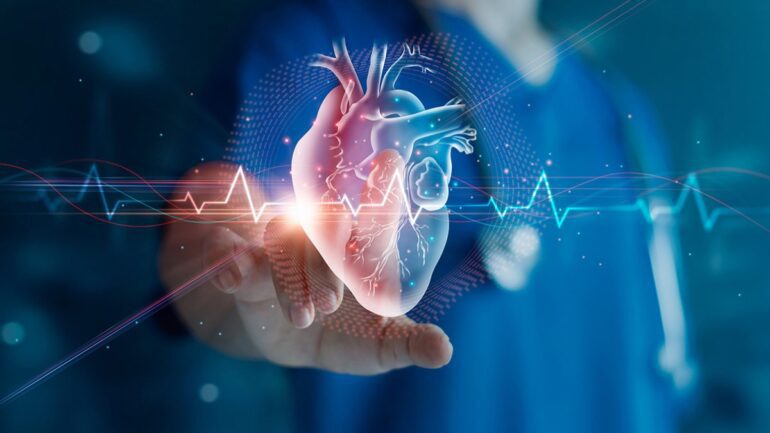TL;DR:
- Researchers create AI model for atrial septal defect (ASD) detection in ECGs.
- AI outperforms traditional methods in identifying ASD signatures.
- Collaborative effort by Brigham and Women’s Hospital and Keio University.
- Early detection potential to prevent irreversible heart damage.
- AI model achieves 93.7% accuracy in identifying ASD cases.
- Integration of ECG-based ASD screening into routine medical practices envisioned.
Main AI News:
The realm of healthcare is no stranger to advancements brought forth by cutting-edge technologies, and the domain of cardiology is no exception. Addressing the intricate realm of atrial septal defect (ASD) detection, researchers have engineered an artificial intelligence (AI) model with exceptional proficiency that surmounts conventional methods. The transformative AI innovation, a collaborative effort between the prestigious Brigham and Women’s Hospital and Japan’s esteemed Keio University, has demonstrated a remarkable capacity to identify ASD signatures within electrocardiograms (ECGs).
Atrial septal defect, a prevalent adult congenital heart ailment, arises from a perforation within the heart’s septum, allowing blood to flow between the left and right atria. Often underreported due to its latent nature, ASD can trigger heart failure with little to no prior symptoms, leaving irreversible complications in its wake. However, the advent of this AI model has the potential to redefine ASD diagnostics, preventing irreversible damage before it occurs.
“Deploying our model across a population-level ECG screening could herald a paradigm shift in identifying these patients before their health deteriorates irreversibly,” states Dr. Shinichi Goto, the corresponding author of this groundbreaking study. Dr. Goto, an accomplished instructor within the Division of Cardiovascular Medicine at Brigham and Women’s Hospital, emphasizes the significance of early detection.
Traditional diagnostic methods, including stethoscope-based auscultation and time-consuming echocardiograms, have proven to be limited in their effectiveness. In contrast, the AI model leverages the efficiency of electrocardiography (ECG) to swiftly analyze readings for telltale ASD indicators. This innovative approach not only saves time but demonstrates heightened sensitivity in detecting ASD cases compared to the human-centric approach.
Intriguingly, the research team utilized a diverse dataset encompassing ECG data from over 80,000 patients. This formidable dataset facilitated training the AI model to discern ASD signatures, leading to an impressive 93.7% accuracy in identifying the condition. In contrast, the traditional approach relying on human expertise managed an accuracy of only 80.6%, underscoring the transformative potential of AI in this context.
Dr. Goto affirms, “The AI model exhibited an ability to discern beyond the capacity of human experts who rely on established anomalies to diagnose ASD.” This AI prowess resonates even in a community hospital environment, reflecting its robust generalization capabilities.
While the study acknowledges that echocardiograms remain an indispensable tool in the ASD diagnosis toolkit, the AI model presents a novel means of augmenting diagnostics. The model, though operating as a “black box,” demonstrates a nuanced understanding of ECG nuances that could aid in future human diagnostics as well.
The implications of this research are profound, indicating the possible integration of ECG-based ASD screening into routine medical appointments or other diagnostic contexts. As technology advances and medical practices evolve, this AI breakthrough may potentially reshape the landscape of cardiac care, ushering in an era where early interventions can stave off irreparable heart damage.
Conclusion:
The emergence of an AI model capable of detecting atrial septal defects in ECGs marks a pivotal advancement in cardiac care. With the potential to enhance early diagnosis and prevent irreversible heart damage, this breakthrough could reshape the medical landscape. As AI technologies continue to evolve, the integration of such models into routine medical screenings could offer more effective diagnostic outcomes and contribute to the overall improvement of cardiac health on a broader scale.

